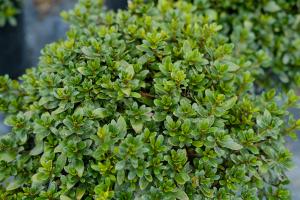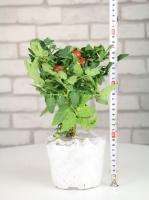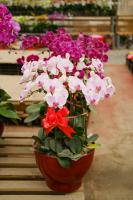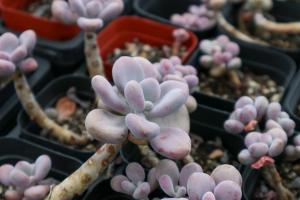Can You Reuse Plant Water?
Water is a precious resource, and many people are conscious of their water usage. This applies not only to human consumption but also to plant irrigation. Reusing plant water can be a great way to conserve water and reduce waste. In this article, we will explore the benefits of reusing plant water and provide tips for doing so effectively.
Benefits of Reusing Plant Water
Reusing plant water has numerous benefits. Firstly, it can help you save water. According to the Environmental Protection Agency, outdoor water usage accounts for around 30% of the average household's water usage. By reusing plant water, you can significantly reduce your outdoor water consumption. This is particularly important in areas that experience frequent droughts or water shortages.
Secondly, reusing plant water can be an eco-friendly solution. Water in the soil is filtered and cleaned by the plant before it is released back into the environment. This means that reusing plant water is a natural form of water filtration, reducing the number of pollutants that end up in our waterways.
Lastly, reusing plant water can be a cost-effective solution. By reusing water, you can reduce your water bill and potentially save money on fertilizer. This is because the nutrients in plant water, such as nitrogen and potassium, can be recycled into the soil, providing natural fertilizer for your plants.
How to Reuse Plant Water
Now that we have established the benefits of reusing plant water, let's explore some tips for doing so effectively.
Firstly, it is important to note that not all plant water is suitable for reuse. The water should not contain any harmful chemicals or pollutants that could be harmful to plants or the environment. This includes water that has come into contact with household cleaning products, chemicals, or pet waste. It is important to only reuse plant water that is clean and free from contaminants.
One way to effectively reuse plant water is by collecting water from your air conditioner or dehumidifier. These appliances produce large amounts of water that can be used to water plants. You can also use leftover water from cooking, such as the water used for boiling vegetables. Allow the water to cool before using it on your plants. If you have an indoor plant, watering with leftover water from your pet's water bowl is also an option.
Another way to reuse plant water is by collecting rainwater. Rainwater is naturally filtered and can provide a valuable source of water for your plants. You can collect rainwater by setting up a rain barrel or simply placing buckets or containers outside during a rainstorm.
Lastly, you can reuse the water from your fish tank or aquarium. The water from your fish tank contains nutrients that can be beneficial for your plants. However, it is important to avoid using water that has been treated with chemicals or medications that could be harmful to your plants.
Conclusion
Reusing plant water is an effective way to conserve water, reduce waste, and provide natural fertilizer for your plants. By following the tips outlined in this article, you can effectively reuse plant water while protecting the environment and saving money. Remember, it is important to only reuse clean water and avoid any water that may contain harmful chemicals or pollutants.

 how many times do yo...
how many times do yo... how many planted tre...
how many planted tre... how many pine trees ...
how many pine trees ... how many pecan trees...
how many pecan trees... how many plants comp...
how many plants comp... how many plants can ...
how many plants can ... how many plants and ...
how many plants and ... how many pepper plan...
how many pepper plan...































